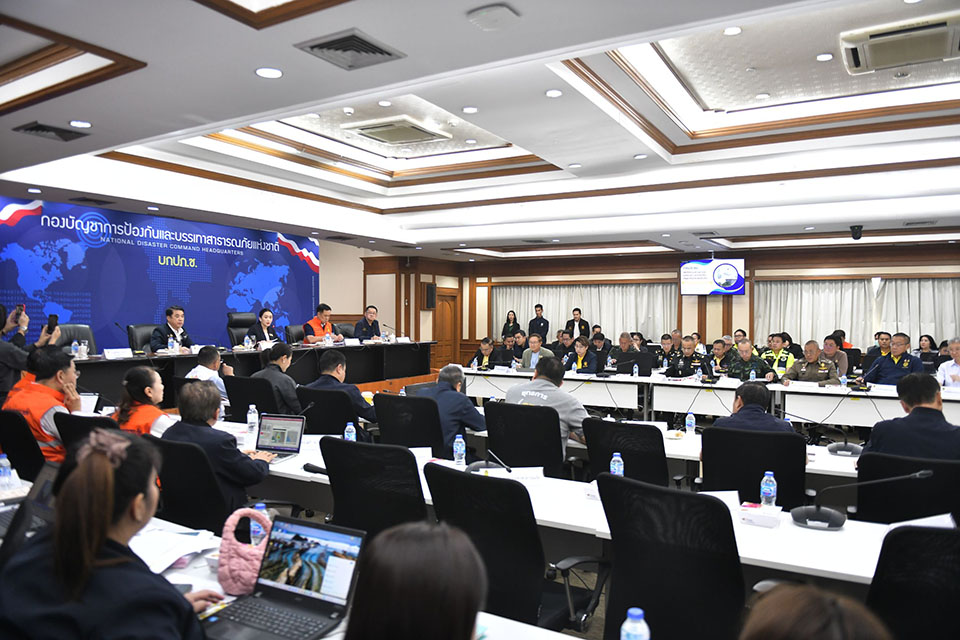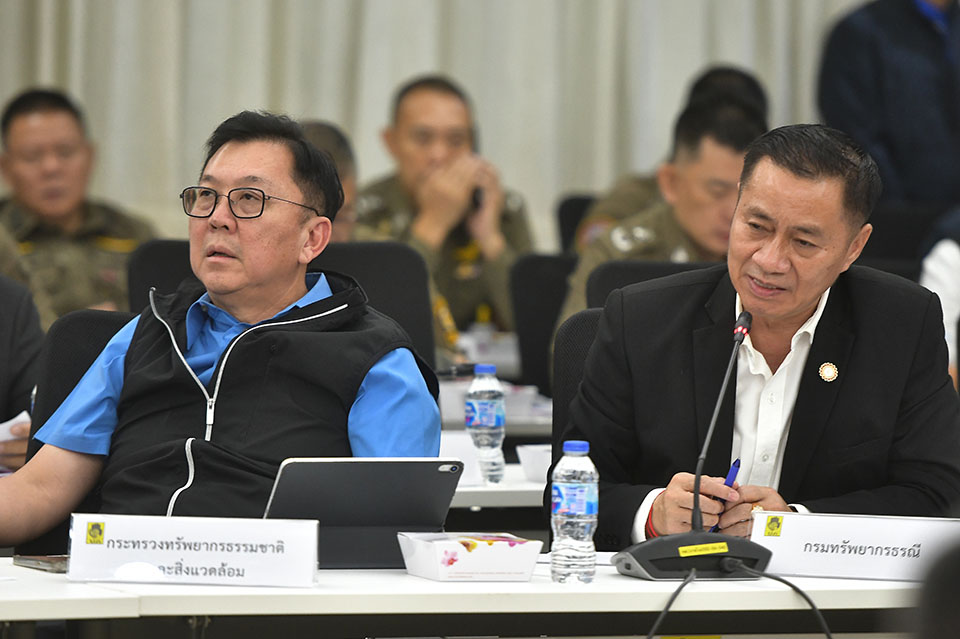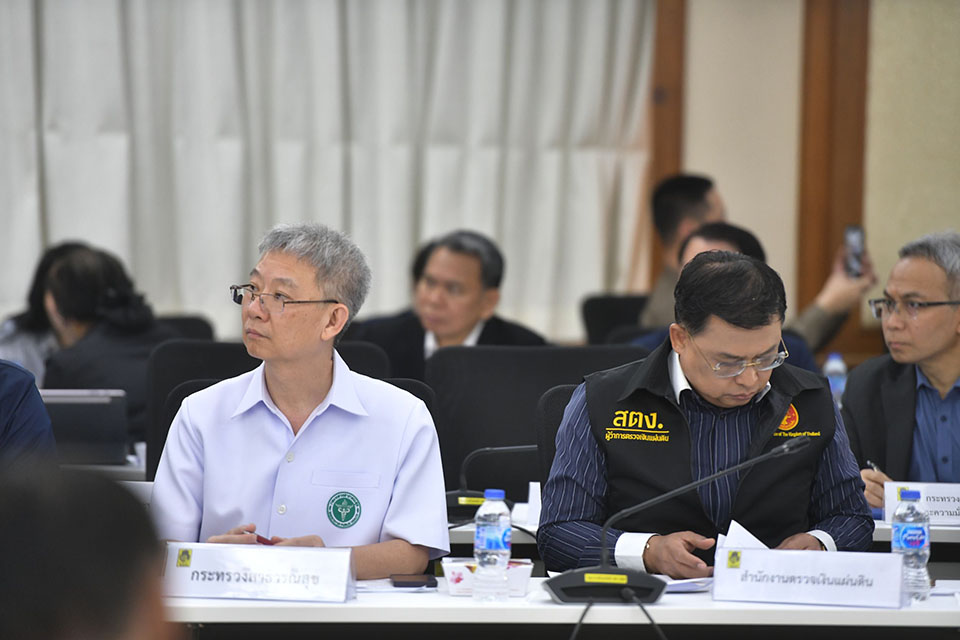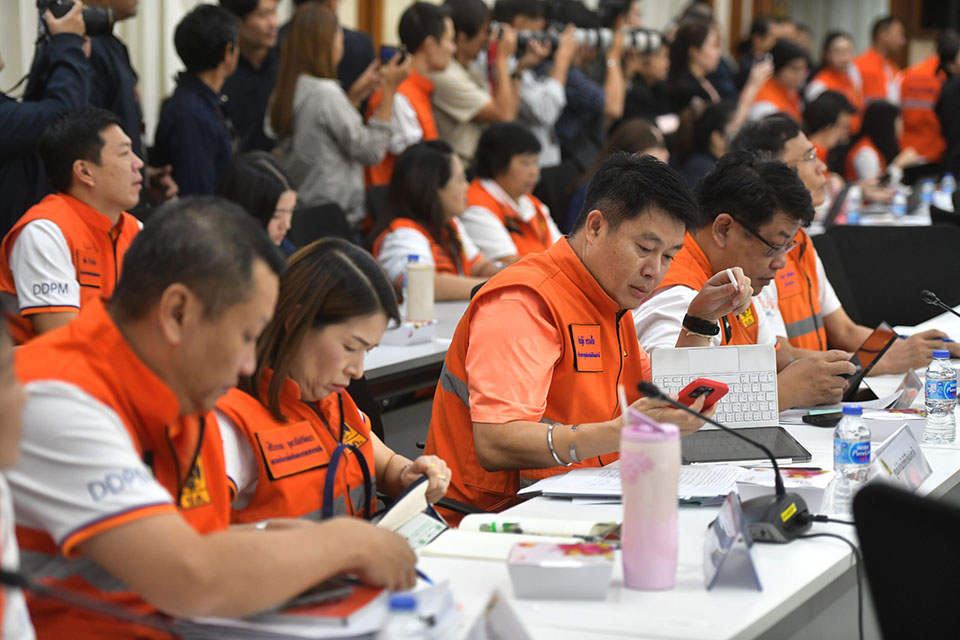
BANGKOK, Thailand – Prime Minister Paetongtarn Shinawatra chaired a meeting at the National Disaster Prevention and Mitigation Command Center to review the earthquake situation and emergency response measures. The meeting was attended by key ministers, military and police officials, and relevant agencies.
During the meeting, the Prime Minister criticized the slow delivery of SMS alerts regarding the earthquake and urged the Department of Disaster Prevention and Mitigation (DDPM) and the National Broadcasting and Telecommunications Commission (NBTC) to improve coordination and expedite notifications to the public.
She questioned officials about the timeline of SMS alerts, noting that the first message was sent at 2:42 PM—more than an hour after the earthquake occurred at 1:20 PM. She also pointed out that the delay was partly due to the current SMS system’s limitations, which only allows messages to be sent to 200,000 numbers at a time. NBTC representatives confirmed that mobile operators are working to expand capacity to reach 3 million numbers per batch, but this process could take 5-6 hours.
The Prime Minister acknowledged that the lack of a Cell Broadcast system, which is expected to be operational by June or July, contributed to the delay. However, she stressed the need for immediate solutions, such as better cooperation with telecom providers to speed up mass messaging. She also highlighted the issue of foreign visitors who use temporary SIM cards, questioning whether they receive emergency alerts.

Additionally, she admitted that the messages sent were not sufficiently detailed, failing to provide clear instructions for the public. Moving forward, she instructed agencies to ensure future alerts include precise and useful information.
Regarding transportation safety, she addressed concerns over disruptions caused by the earthquake, including subway and skytrain shutdowns. She urged the Ministry of Transport and NBTC to integrate communication systems so that in future emergencies, SMS alerts can provide real-time updates on road and public transport conditions.
The Meteorological Department reported that aftershocks have occurred over 100 times but are weakening and shifting northward toward the Himalayas, with minimal impact on Thailand. The Prime Minister sought further clarification, ensuring that the aftershocks would not pose a significant threat to the country.
The meeting concluded with an emphasis on improving emergency response efficiency, particularly in delivering timely and accurate public warnings.














